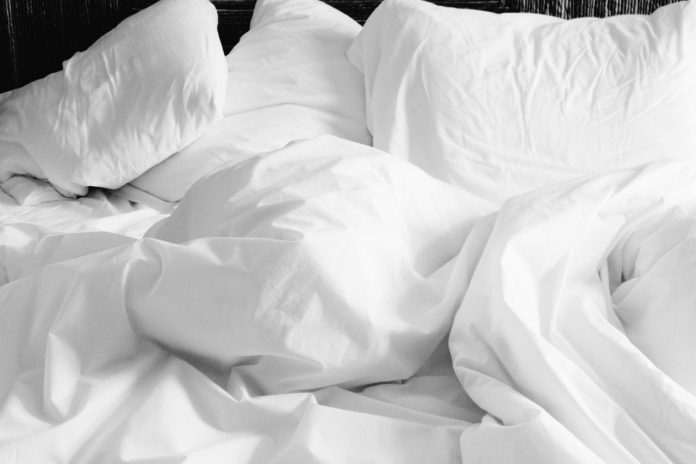It’s a question people very seldom seem to ask themselves, but how often should you change your sheets? If you are like many of the 1000 Americans who responded to a Mattress Advisor survey, and do it on average once every 24.4 days, you may be in for a big surpise.
The survey revealed a number of rather startling sheet facts that have dermatologists the world over fairly shocked. Among the revelations it was discovered that Men are more likely to wait longer between sheet changes than women (29.6 days vs. 19.4 days). On average, single people go 37 days before changing their sheets, while those in relationships go 21.8 days, and married couples go 19.9 days. 43% of men said they’d wash their sheets before a night out if they believed sex was a possibility, while 33.4% of women said they would do the same. Here is the truly surprising part; on average, men wait 11.7 days to wash their sheets after sex, while women wait 4.3 days.
So how often should you be changing them?
Those reading this who change their sheets once a week may be in the minority, but according to experts they are the ones we should all be following.
While it might sound like a mundane task, there are numerous compelling reasons behind this weekly ritual. According to dermatologist Carey Lyle, your bed can become a breeding ground for skin irritants. She elaborates, “A buildup of microbes such as bacteria, fungi, and viruses, along with oils, bodily secretions, dust, and debris, accumulates on your bedding. This accumulation can lead to clogged pores, allergies, unpleasant odours, and even infections. It’s wise to shower before bedtime and always remove makeup before going to sleep.”
She cautions, “If you neglect to change your sheets regularly, you may find yourself sharing your bed with more than just your partner. Our sheets become a haven for dead skin cells, dust mites, food particles, and various types of bacteria. The combination of these elements residing in your sheets can even trigger allergies in some individuals.”
Furthermore, irritation from such contaminants can compromise the skin barrier and exacerbate existing skin conditions.
Lyle elaborates, “Patients with conditions like eczema or a compromised skin barrier are more susceptible to irritation or flare-ups caused by bacteria and allergens in their bed sheets.”
Can Hygiene change the picture?
While the consensus is clear on the importance of regular sheet changes, there is a slight margin for personal variation based on hygiene habits. Lyle reluctantly says, “At the very least, pillowcases should be changed every week. If you sleep without clothes on, you might benefit from changing your sheets closer to the one to two-week mark.”
For those who share their bed with a furry friend, Lyle recommends an even shorter washing schedule. She advises, “I recommend changing the sheets every three to four days in such cases.” If weekly washing is not feasible, Lyle suggests at least airing out the sheets after use.
She does, however, insist that, “In general, the maximum time you should go without changing your sheets should be two weeks.” So, it’s clear that regular sheet changes are not just a matter of hygiene but also crucial for maintaining healthy skin and overall well-being.


